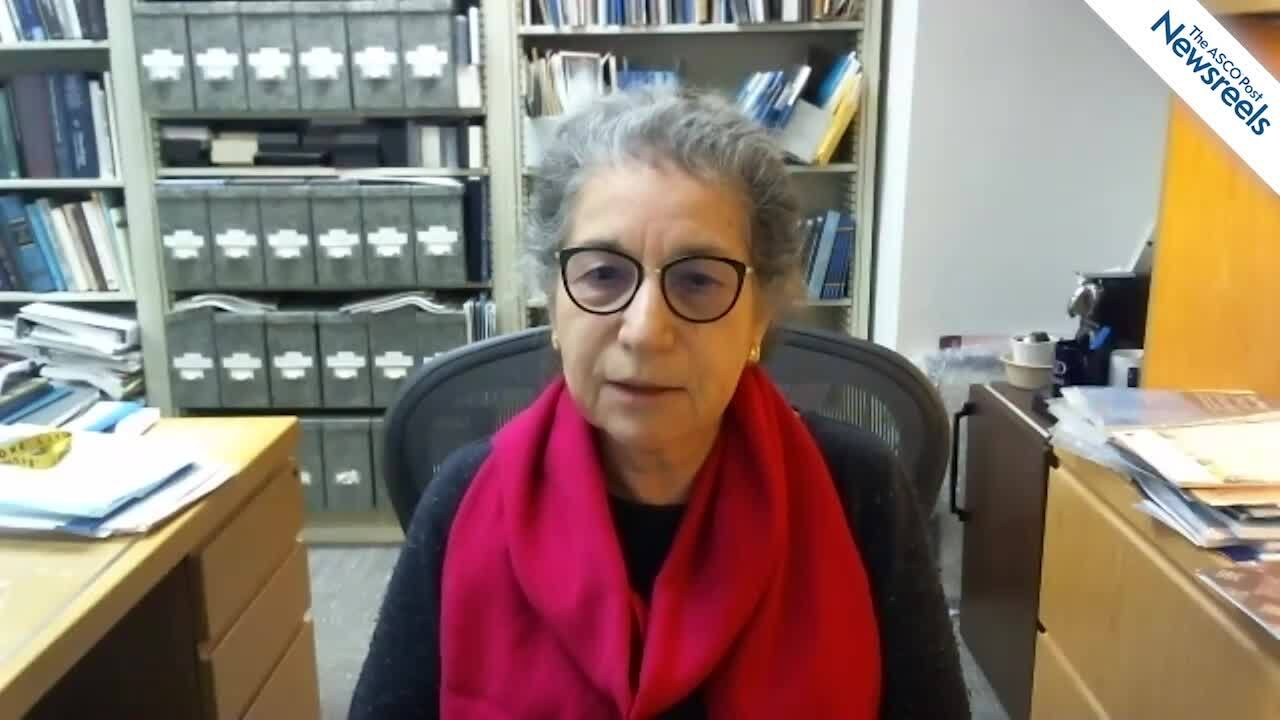Roisin M. Connolly, MD, on HR+ Advanced Breast Cancer: Endocrine Therapy and Entinostat
2020 San Antonio Breast Cancer Symposium
Roisin M. Connolly, MD, of University College Cork, discusses phase III results from the E2112 trial, which showed exemestane plus entinostat did not improve survival in aromatase inhibitor–resistant advanced HR-positive, HER2-negative breast cancer (Abstract GS4-02).
The ASCO Post Staff
Elizabeth A. Mittendorf, MD, PhD, of Brigham and Women’s Hospital, summarizes her plenary talk, which featured the uncertainties in treatment knowledge: excision of postchemotherapy calcifications; the best sentinel lymph node biopsy technique for patients with node-positive disease who convert to node-negative disease with neoadjuvant chemotherapy; whether immunohistochemistry should be routinely used for sentinel lymph node evaluation; and the role of radiation therapy in this patient population.
The ASCO Post Staff
Nadia Harbeck, MD, of the University of Munich, discusses the first outcome data from the phase III ADAPT HR+/HER– trial, which combined both static and dynamic biomarkers to optimize the adjuvant therapy approach in patients with intermediate- or high-risk luminal early breast cancer (Abstract GS4-04).
The ASCO Post Staff
Ann H. Partridge, MD, MPH, of Dana-Farber Cancer Institute, discusses results from the ALTERNATE trial on response to neoadjuvant chemotherapy in postmenopausal women with clinical stage II or III estrogen receptor–positive and HER2-negative breast cancer that is resistant to endocrine therapy. The findings highlight the need for more effective treatments in this high-risk population (Abstract GS4-05).
The ASCO Post Staff
Patricia A. Ganz, MD, of the University of California, Los Angeles, discusses study findings that showed mindfulness meditation and survivorship education may effectively reduce depression and related symptoms such as fatigue and sleep disturbance, which pose serious threats to younger women’s health and well-being after being treated for cancer (Abstract GS2-10).
The ASCO Post Staff
Lee S. Schwartzberg, MD, of the West Cancer Center, discusses phase III results from the CONTESSA study, which showed that an all-oral regimen of tesetaxel plus a reduced dose of capecitabine significantly improved progression-free survival compared with capecitabine alone in patients with HER2-negative, hormone receptor–positive metastatic breast cancer previously treated with a taxane (Abstract GS4-01).
Editor's note: On March 22, 2021, Odonate Therapeutics announced it was discontinuing the development of tesetaxel and will close the company's operations. Read more here.





